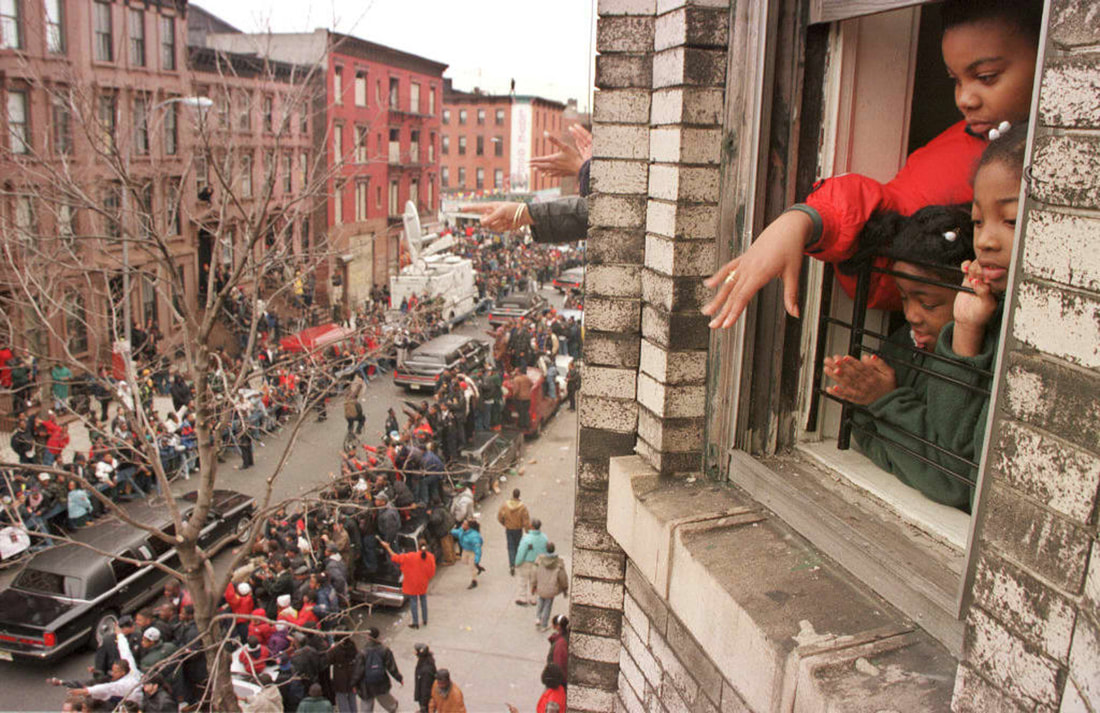
Why do we grieve for people we've never met? A recent article in The Economist explains the strong emotional reaction many of us have when actors and musicians pass away is less logical than we may think. The passion us humans feel has been well documented over the years.
After Alexander Pushkin was shot in a duel in 1837, crowds of mourners formed in St Petersburg, requiring 60,000 troops to supervise the gathered mass of people.
Fervid lamentation in the death of Rudolph Valentino in 1926 saw many people enter into a frenzy . Fans who mobbed the funeral parlor in New York where he lay on view were restrained by mounted police, with several fans reportedly killing themselves.
Today’s celebrity obsequies tend to be less fanatical, and more digital - but passionate all the same.
Recent outpouring of grief for Cormac McCarthy, Tina Turner, and Jimmy Buffet are odd and almost irrational, the Economist says. Why?
Because unlike other kinds of personal grief, this outpouring for celebrities does not come from intimacy. Unless you were one of the few to have a genuine interaction with the person, it is a misappropriation to connect the artist’s work - which may not align with their own beliefs - with the tide of your own life.
Additionally, while the individual may no longer be with us, the element that originally drew people to that person - their art - is still there. In fact, death has the opposite effect to a person’s art once they are laid down to rest. Curiosity and intrigue often drive up sales.
It is true, however, that no more writing or music is released after a person dies. And that knowledge settling down in someone’s psyche can be a genuine emotion. It depends on the individual, but often times their best work was accomplished before their demise.
A few exceptions to an artist certainly having released their most beloved projects are Jimi Hendrix, Janis Joplin, and Amy Winehouse. Such early and untimely exits are tragic, and are surely worthy of genuine reactions and massive processions. Christopher Wallace, known by his stage moniker Notorious B.I.G., and the large-scale parade that followed his death at age 24, is perhaps the best example of this.
After Alexander Pushkin was shot in a duel in 1837, crowds of mourners formed in St Petersburg, requiring 60,000 troops to supervise the gathered mass of people.
Fervid lamentation in the death of Rudolph Valentino in 1926 saw many people enter into a frenzy . Fans who mobbed the funeral parlor in New York where he lay on view were restrained by mounted police, with several fans reportedly killing themselves.
Today’s celebrity obsequies tend to be less fanatical, and more digital - but passionate all the same.
Recent outpouring of grief for Cormac McCarthy, Tina Turner, and Jimmy Buffet are odd and almost irrational, the Economist says. Why?
Because unlike other kinds of personal grief, this outpouring for celebrities does not come from intimacy. Unless you were one of the few to have a genuine interaction with the person, it is a misappropriation to connect the artist’s work - which may not align with their own beliefs - with the tide of your own life.
Additionally, while the individual may no longer be with us, the element that originally drew people to that person - their art - is still there. In fact, death has the opposite effect to a person’s art once they are laid down to rest. Curiosity and intrigue often drive up sales.
It is true, however, that no more writing or music is released after a person dies. And that knowledge settling down in someone’s psyche can be a genuine emotion. It depends on the individual, but often times their best work was accomplished before their demise.
A few exceptions to an artist certainly having released their most beloved projects are Jimi Hendrix, Janis Joplin, and Amy Winehouse. Such early and untimely exits are tragic, and are surely worthy of genuine reactions and massive processions. Christopher Wallace, known by his stage moniker Notorious B.I.G., and the large-scale parade that followed his death at age 24, is perhaps the best example of this.
| What does all of this say about how us as humans react to death? Is it self-indulgent to wallow in the death of a beloved celebrity? Can you tell a person how to feel about the passing of one of their favorite celebrities? The grief can be seen as a transitive form of gratitude for the way the artist formed the soundtrack for some part of a person’s life. |
Similarly for how we deal with the death of a loved one, these often digital outpourings of both distress and thankfulness are a very human. As death is as much a part of being human as forming friendships and growing older, it is in line with how we operate as social creatures that when we lose someone that meant something to us, whether they were in our daily lives or not, these feelings naturally come out.

 RSS Feed
RSS Feed
